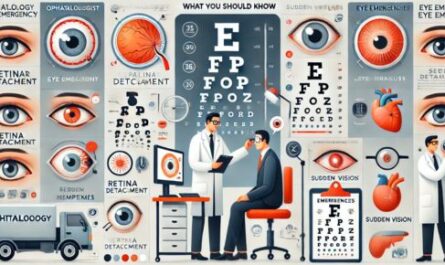1. Introduction to Itchy Skin and Allergies
Itchy skin is a common symptom of allergies, causing discomfort and affecting daily life. Identifying the best allergy medicine for itchy skin can help alleviate this symptom and improve overall well-being. Understanding the underlying causes and available treatments is crucial for effective management.
2. Causes of Itchy Skin
Itchy skin can be caused by various factors, including allergies to pollen, pet dander, dust mites, and certain foods. Other causes include skin conditions like eczema, contact dermatitis, and insect bites. Identifying the cause is essential for selecting the appropriate treatment.
3. Types of Allergy Medicines
There are several types of allergy medicines available, including antihistamines, corticosteroids, and immunosuppressants. Each type works differently to alleviate symptoms and is suitable for different levels of severity and specific conditions.
4. Over-the-Counter (OTC) Antihistamines
OTC antihistamines are commonly used to treat itchy skin caused by allergies. They work by blocking histamine, a substance released during an allergic reaction. Popular OTC antihistamines include loratadine (Claritin), cetirizine (Zyrtec), and diphenhydramine (Benadryl).
5. Prescription Antihistamines
For more severe cases of itchy skin, prescription antihistamines may be necessary. These include fexofenadine (Allegra), desloratadine (Clarinex), and hydroxyzine (Atarax). These medications provide stronger relief and are usually recommended by a healthcare provider.
6. Topical Corticosteroids
Topical corticosteroids are effective for reducing inflammation and itching on the skin. These creams or ointments are applied directly to the affected area. Common options include hydrocortisone, betamethasone, and clobetasol. They should be used as directed by a healthcare provider.
7. Oral Corticosteroids
Oral corticosteroids, such as prednisone, are prescribed for severe allergic reactions and chronic itchy skin conditions. These medications reduce inflammation and suppress the immune system. They are usually prescribed for short-term use due to potential side effects.
8. Immunosuppressants
Immunosuppressants, like cyclosporine and methotrexate, are used for severe cases of eczema and other chronic skin conditions. These medications suppress the immune system, reducing inflammation and itchiness. They require close monitoring by a healthcare provider.
9. Biologics for Itchy Skin
Biologics are a newer class of medications used to treat severe eczema and other skin conditions. Examples include dupilumab (Dupixent) and omalizumab (Xolair). These medications target specific parts of the immune system and are administered by injection.
10. Antihistamine Creams and Lotions
Antihistamine creams and lotions, such as diphenhydramine cream (Benadryl), provide topical relief for itchy skin. These products are applied directly to the skin and help reduce itching and inflammation caused by allergic reactions.
11. Moisturizers and Emollients
Keeping the skin hydrated is essential for managing itchy skin. Moisturizers and emollients, such as petrolatum and ceramide-based creams, help restore the skin barrier and prevent dryness. Regular use can reduce itchiness and improve skin health.
12. Natural Remedies for Itchy Skin
Natural remedies, such as aloe vera, oatmeal baths, and coconut oil, can provide relief for itchy skin. These remedies have soothing properties and are generally safe for most people. However, it’s important to test for any potential allergic reactions before use.
13. Avoiding Allergens
Preventing exposure to allergens is a key strategy in managing itchy skin. This includes using hypoallergenic bedding, avoiding known food allergens, and maintaining a clean living environment. Reducing allergen exposure can significantly decrease the frequency and severity of symptoms.
14. Role of Antihistamines in Allergy Management
Antihistamines are a cornerstone of allergy management. They provide quick relief from itching and other allergic symptoms by blocking the effects of histamine. Both OTC and prescription options are available, making them accessible for various levels of severity.
15. Importance of Moisturizing
Regular moisturizing is crucial for maintaining healthy skin and preventing itchiness. Moisturizers help repair the skin barrier and retain moisture, reducing the likelihood of dryness and irritation. Choose products that are fragrance-free and suitable for sensitive skin.
16. Using Hydrocortisone Cream
Hydrocortisone cream is a mild corticosteroid available over the counter. It’s effective for treating mild to moderate itchy skin conditions. Applying a thin layer to the affected area can reduce inflammation and provide relief from itching.
17. Benefits of Antihistamine Tablets
Antihistamine tablets, such as loratadine and cetirizine, provide systemic relief from itchy skin. These tablets are convenient to use and can alleviate multiple allergy symptoms, including itching, sneezing, and runny nose.
18. Prescription Options for Severe Itchiness
For severe itchiness that doesn’t respond to OTC treatments, prescription medications may be necessary. These include stronger antihistamines, corticosteroids, and immunosuppressants. Consulting a healthcare provider is essential for determining the best course of treatment.
19. Side Effects of Allergy Medications
Allergy medications can have side effects, including drowsiness, dry mouth, and weight gain. It’s important to discuss potential side effects with a healthcare provider and follow their recommendations for safe use.
20. Choosing the Right Medication
Choosing the right allergy medication depends on the severity of symptoms, underlying conditions, and individual response. Consulting a healthcare provider helps ensure the best treatment plan tailored to specific needs and health status.
21. Monitoring and Adjusting Treatment
Regular monitoring and adjusting treatment are important for managing itchy skin effectively. Keeping track of symptoms and their triggers helps in making necessary adjustments to the treatment plan, ensuring optimal relief and skin health.
22. Integrating Lifestyle Changes
Incorporating lifestyle changes, such as maintaining a balanced diet, staying hydrated, and managing stress, can support the effectiveness of allergy medications. Healthy habits contribute to overall skin health and reduce the frequency of allergic reactions.
23. Consulting a Dermatologist
For persistent or severe itchy skin, consulting a dermatologist is advisable. Dermatologists specialize in skin conditions and can provide expert advice, advanced treatments, and tailored skincare routines to manage and alleviate symptoms effectively.
24. Allergy Testing and Diagnosis
Allergy testing, such as skin prick tests and blood tests, can help identify specific allergens causing itchy skin. Accurate diagnosis allows for targeted treatment and better management of symptoms, improving overall quality of life.
25. Conclusion: Effective Management of Itchy Skin
Managing itchy skin effectively involves a combination of appropriate medications, skincare routines, and lifestyle changes. Consulting healthcare providers, staying informed about treatment options, and avoiding known allergens are key strategies for relief and maintaining healthy skin. By understanding and utilizing the best allergy medicines, individuals can alleviate symptoms and improve their quality of life.



